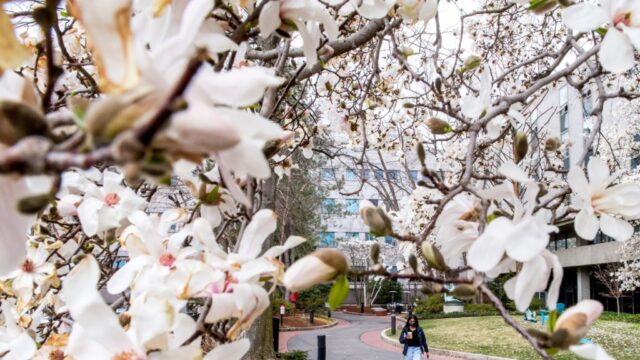PPE/Ethics Institute Speaker Events

Spring 2021 Semester list of speakers is below.
Title: The Case for Climate Reparations
Abstract: A partnered investigation between ProPublica and the New York Times has revealed the writing on the wall. We are at the beginnings of a “Great Climate Migration” that will transform the world. There are two ways forward: climate colonialism and apartheid or climate reparations. Climate apartheid describes the fact that we can expect a new kind of social division to arise within countries and communities: between those who can pay to avoid the worst impacts of climate change and those who cannot. Climate colonialism simply considers this same phenomenon on an international scale.
Reparations is a way forward through the climate crisis that doesn’t double down on these dismal precedents. A reparatory approach to climate migration would involve an overhaul of climate policy in both nation-states and multinational institutions. It would be broadly redistributive of wealth and power, both within and across countries. That redistribution would be historically informed: we would reject both the ‘rescue’ framing of state elites’ naked pursuit of self interest in refugee policy and the “voluntary repatriation” centered model that allows them to act on it with international authorization. Ultimately, we endorse the argument, developed and defended by legal scholar E. Tendayi Achiume, that corrective, distributive justice demands recognition of the entitlement of “Third World persons” to “a form of First World citizenship”.
However extreme this renegotiation of state sovereignty and citizenship may strike some readers, it’s nowhere near as extreme as the logical conclusion of the status quo’s violent alternative: mass famine, region-scale armed conflict. Compared to the horrors of climate apartheid and colonialism, having more neighbors is a small price to pay.
We suggest reading an article he wrote in Foreign Policy on this topic, The Case for Climate Reparations
Title: Does Democracy Have A Future?
Abstract: Echoing Plato’s argument in Book VIII of The Republic, some thinkers contend that democracies have an unavoidable tendency to destroy themselves from within. Familiar Platonic concerns have been strengthened by the demise of print-journalism, the emergence of the “post-truth” era, the economic challenges of globalization and the digital economy, and the dangers of racist and xenophobic fear and resentment. But this talk will argue that even if democracy is on life support, the means of saving it from destruction are still within our grasp. We must be to reinvigorate democratic civic virtues such as collective compromise, civic sacrifice, horizontal trust, and allow mutual respect and compassionate concern to reshape our interactions in the “public square.”
Speaker Bio: Michele Moody-Adams is currently Joseph Straus Professor of Political Philosophy and Legal Theory at Columbia University, where she served as Dean of Columbia College and Vice President for Undergraduate Education from 2009-2011. Before Columbia, she taught at Cornell University, where she was Vice Provost for Undergraduate Education and Director of the Program on Ethics and Public Life. She has also taught at Wellesley College, the University of Rochester, and Indiana University, where she served as an Associate Dean.
Title: TBD
Abstract: TBD
Speaker Bio: Krushil Watene, Associate Professor, her broad areas of research are moral and political philosophy. She’s interested in concepts like: equality, community, freedom, and rights. She is also interested in how we improve people’s lives (well-being) and how we make society and the world just (social and global justice). Much of her work is written from the perspective of the ‘capability approach’. As a theory of well-being, the capability approach tells us that we should be concerned with what people are able to do and be (our capabilities to function). We improve people’s lives by expanding their real opportunities to live the kinds of lives they value and have reason to value.